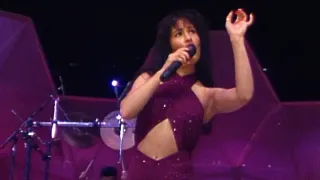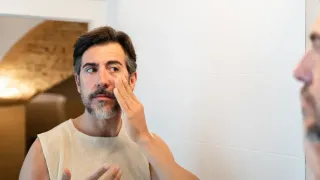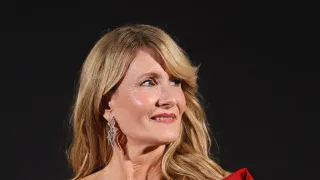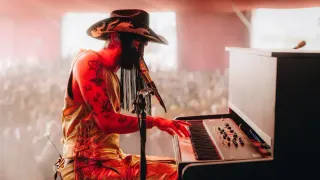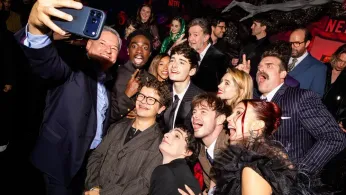
5 hours ago
"Stranger Things" Bids Farewell with Its Gayest, Most Heartfelt Season Yet
READ TIME: 4 MIN.
Queer fans of "Stranger Things," gather round—because the Netflix juggernaut is closing out not just with monsters, synths, and 80s nostalgia, but with a radiant celebration of identity, love, and unapologetic weirdness. As Hawkins says goodbye to its beloved crew, the final days on set have become a masterclass in vulnerability, queer joy, and the magic of found family—a message that feels tailor-made for LGBTQ+ audiences everywhere.
For years, fans have speculated about Will Byers’ sexuality, catching glimpses of longing, heartbreak, and coded glances between him and Mike. Now, actor Noah Schnapp confirms: Will’s journey of self-discovery is the “major plot point” of the final season, with his coming out arc no longer just subtext, but the emotional backbone of Stranger Things’ swan song.
Schnapp, who himself came out as gay in 2023 on TikTok, says, “Seeing how the world receives Will, and embraces him, has taught me through the years to feel OK in who I am and how I express myself.” Both the character and the actor’s real-life journeys have become intertwined, making Will’s story one that resonates not just with queer viewers, but “with all people who feel different”.
In a franchise where monsters lurk and kids battle the unknown, Will’s quiet bravery—his struggle to find the words for who he loves and how he fits in—lands as the most relatable, human fight of all. For LGBTQ+ fans who grew up feeling like the “odd one out,” Stranger Things’ message is clear: There’s power in embracing what makes us different, and joy in finding our people.
But Will isn’t alone in this rainbow-hued journey. As the cast gathered for the final season premiere, Noah Schnapp declared: “Gay is such a positive word, so I’ll say it’s the gayest it’s ever been.” Brett Gelman, who plays Murray, took it further, rating the show “a 10 on the gay scale,” then doubled down: “Everything that is high quality in the world is gay. Period, king.” Amybeth McNulty, who returns as Robin’s love interest Vickie, winked at fans: “Are there a few gay scenes to look forward to? Yes, of course. I love the gays. I would never!”.
Stranger Things has always been a show about outsiders—kids cursed with too much curiosity, nerds, punks, and misfits. For queer viewers, Hawkins has felt like a mirror: a place where difference isn’t just tolerated, but treasured. In its final act, the series goes all in on that ethos, weaving queerness through not just romance, but friendship, solidarity, and self-love.
The final days on set were awash in emotion. Schnapp confessed, “I’m at a loss without the show”—and fans might feel the same. The cast’s tearful farewells aren’t just about leaving behind Demogorgons and neon-lit sets, but about saying goodbye to a community that, for many, was the first place they saw themselves reflected.
For LGBTQ+ audiences, that resonance is profound. The show’s final arc isn’t just about closing the gate to the Upside Down—it’s about opening doors to new possibilities, new friendships, and new stories that center queer lives. As the cast hugged it out and wiped away tears, they knew they’d helped build something bigger than a TV show: a safe haven for anyone who’s ever felt too strange for the world around them.
Stranger Things arrives at a cultural moment where queer representation is no longer relegated to the background, but stands proudly in the spotlight. From Will’s aching vulnerability to Robin’s razor-sharp wit and Vickie’s tender warmth, the series proves that coming-of-age stories aren’t just about falling in love—they’re about discovering who you are, and daring to show the world.
Noah Schnapp’s openness about his own sexuality has brought a wave of authenticity to the show’s narrative. “As a person, it taught me that it’s OK to be me, as everything that I am,” Schnapp said, underlining the way art and life have blurred in the Stranger Things universe.
For fans who’ve felt invisible or misunderstood, Stranger Things’ final season is a call to arms: Wear your weirdness proudly. Fight the monsters, literal or not. And never underestimate the power of a chosen family.
Why does Stranger Things matter so much to LGBTQ+ audiences? It’s not just about rainbow Easter eggs or fleeting side characters. Stranger Things has built a legacy where queerness is woven into the fabric of its world, where the battle against the unknown is mirrored by the fight for acceptance, and where “different” is not a curse, but a crown.
Brett Gelman’s assertion that “everything that is high quality in the world is gay” isn’t just a punchline—it’s a rallying cry. When a show as massive as Stranger Things treats queer energy as integral to its DNA, it sends a message to viewers everywhere: Queerness isn’t a gimmick or a plot twist. It’s power. It’s beauty. It’s essential.
As Stranger Things drops its final episodes—November 26, Christmas Day, and New Year’s Eve for the true binge-watchers—the Hawkins crew’s journey offers closure and a new beginning. For queer fans, the series’ message lingers long after the credits roll: You belong, even when the world feels upside down.
In the words of Will Byers, and the actor who plays him: “It doesn’t resonate with queer people, it resonates with all people who feel different.” But for LGBTQ+ viewers, that difference is finally celebrated, not hidden. And as Hawkins fades into the neon-lit night, Stranger Things leaves behind a legacy of queer possibility—one we’ll carry with us, wherever the next adventure leads.


